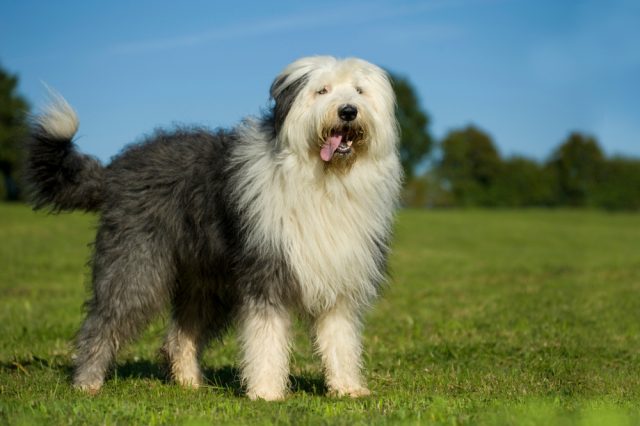While any dog can get joint problems, because of genetic predisposition and body build, some breeds are more likely to develop these kinds of issues. Although all pup parents should watch for signs of joint pain or immobility, especially as their dogs age, certain breeds are more likely to develop joint issues.
When purchasing a puppy, find out if the parents – or pups in any of their other litters – have ever shown signs of joint issues, like hip dysplasia. If your dog is already part of your family and you’re concerned about her joint health, talk with your vet about exercises to help maintain mobility, activities that should be avoided, and adding specially-designed supplements to her diet.
Below are 9 dog breeds that tend to be predisposed to joint problems. If you’re a pup parent to any of these dogs, keep an extra-close eye on your canine companion!
1. German Shepherds
It’s no secret that GSD’s are predisposed to hip dysplasia, as well as other joint issues like arthritis. Being proactive in their health can help prevent the severity of these issues, should they develop.

2. Labs
Labs are prone to obesity, which can amplify the stress on joints, as well as make common conditions in the breed – like hip and elbow dysplasia – even worse.

3. Dachshunds
With their long, low torsos, Doxies can develop back problems, especially if their little bodies become overweight. Avoiding excess strain on the back and neck also reduces their risk for spinal injuries.

4. Rottweiler
Like many other big breeds, Rotties are genetically predisposed to developing hip and elbow dysplasia and arthritis. They’re also prone to osteochondrosis dissecans (OCD), a malformation in the joint cartilage, which can be prevented with proper nutrition.

5. Newfoundlands
These gentle giants, like other big breeds, can develop hip and/or elbow dysplasia, as well as arthritis at a young age. This is partially due to the fact that they grow so big at such a fast rate.

6. Great Danes
It should be no surprise that the big and lovable Great Dane made this list. As with the others, their huge frames and fast growth can lead to hip and/or elbow dysplasia and arthritis.

7. Saint Bernards
Like other colossal canines, the huge, fast-growing bodies of Saint Bernards can cause stress on the joints, leading to problems that include hip and elbow dysplasia and arthritis.

8. Old English Sheep Dogs
These large dogs are another breed that can be plagued by the effects of hip dysplasia. This means that owners should also keep an eye out for the development of arthritis.

9. Mastiffs
The mighty Mastiff is another breed that is prone to hip and/or elbow dysplasia, also making them candidates for arthritis.

We all hate to think of our dogs being in less-than-perfect health, but it’s an inevitable part of aging – and part of life! The best thing we can do for our four-legged family members is gain the necessary knowledge to try to prevent the onset of disease, or to treat any existing condition as best as we can. After all, they deserve to live the best lives possible!
What Should I Do If My Dog Is On This List?
To learn about ways to prevent or mitigate the effect of joint degeneration, please visit our article 10 Natural Ways To Relieve Canine Arthritis & Joint Pain.
Many veterinarians recommend supplementing with glucosamine, MSM, and chondroitin when a dog is as young as one year old (or at the time when they stop growing).
There are lots of different glucosamine, MSM, and chondroitin supplements on the market for dogs. It’s important to choose a joint health supplement that offers the correct therapeutic dosage for your dog’s needs and is made from the highest quality ingredients.
We here at iHeartDogs spent over a year developing our Happy, Healthy formula, which contains a unique blend of 8 powerful active ingredients, including organic turmeric. In addition, it’s the only canine joint supplement on the market that supports animal shelters through every purchase!
Learn More about Happy, Healthy Canine Joint Care Supplements
Would you like to learn more about choosing a canine joint glucosamine or joint supplement? View our guide to the best joint supplement products for your dog.
These statements have not been evaluated by the Food and Drug Administration. This product is not intended to diagnose, treat, cure, or prevent any disease.


